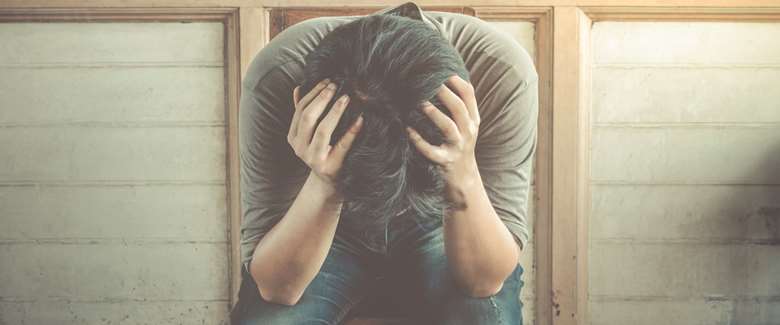Musicians and Performance Anxiety: How to Cope
Coriander Stuttard
Friday, October 30, 2020
How musicians can take steps to address anxiety and negative emotions

Monia Brizzi is a London-based practicing performance psychologist with a specialist interest in performance and creativity in art and in everyday life. She is a chartered psychologist and associate fellow of the British Psychological Society (BPS), a registered psychologist of the Health and Care Professions Council (HCPC), a registered psychotherapist of the British Association for Counselling and Psychotherapy (BACP) and a registered practitioner with the British Association for Performing Arts Medicine (BAPAM).
My conversation with Monia Brizzi dives straight into the importance of the bond between physical and mental wellbeing and what the nature of creativity – in art and in living – actually is. It’s complicated stuff, but as our conversation evolves, Brizzi defines and illustrates what she means.
Brizzi has worked with artists since 2006. She practices as a performance psychologist and coach and her work with musicians is made possible with the help of the Royal Society of Musicians and Help Musicians UK. Brizzi regularly meets with a BAPAM peer supervision group for psychosocial practitioners which discusses key issues arising within the performing arts industry. ‘The number one question,’ she explains, ‘is what is happening to performers? Initially they can expand their everyday selves and actualise their creative vision in a way that liberates them – but something happens to turn it into a burden.’
To find answers, Brizzi examines what the pressurized environments of competition, professionalisation and other things do when they reach a point of conflict within the performer. As she puts it: ‘the performing self is not the same as the being who thinks about it once they stop performing’. The relationship between the two ‘selves’ is central to Brizzi’s work with her clients. She tells me: ‘what is crucial is finding a way to navigate back and forth between these two positions more easily and more quickly by using the critical voice, anxieties and vulnerabilities as triggers rather than obstacles. The question is not so much whether these things are there or not, or how to eliminate them, but how to use them more effectively. What does the thinking being do? Is it thinking in a way which is accepting of what is there – authenticity – or restrictive, never satisfied and self-critical?’
Brizzi explains that ‘in optimal performance the separation between the performing being and the thinking being evaporates into a creative tension, or ‘flow’, that defies conventional mind/body, self/world divisions.’ She adds that ‘since the self is also an outcome of how you are in these fundamental tensions, it is important to note how art reveals the workings of identity and the formation of meaning.’
In optimal performance the separation between the performing being and the thinking being evaporates into a creative tension or ‘flow’
Clients often find their way to Brizzi’s consulting room having already completed some sessions with someone else or having looked for a quick fix solution to their problems, but when I talk to Brizzi, it’s clear that her deep understanding of the stresses and strains of performance, and of the approaches and skills suited to becoming a dedicated performer are what makes her handling of these issues so helpful. ‘Many performers actually need some of the anxiety, like a ritual to get them into performing state’ she explains. What is more important is how they relate to that anxiety – by meeting or turning away from it. ‘You have to work to use it in a different way, rather than try to eliminate it. It is a balancing act. I believe it is problematic to assume that what musicians are experiencing is wrong and needs to be got rid of. “Negative emotions” can be debilitating and chaotic, but also a potent spur to creativity.’
I ask how work with clients would typically evolve during sessions. Brizzi explains that it brings about practical solutions to address difficulties and symptoms of disturbance for the individual. ‘I’m trying to speak in a language that gets close to the lived experience of people, rather than the manualised version. Generalisations and pre-existing formulas are quite disembodied and anti-creative. We are not really helpless. How you focus on something changes it. Perception is a doing and consciousness a creative act. It’s about working with these primal forces in ways that enhance and propel forward rather than inhibit people’s lives.’
Brizzi notices a relationship between physical and psychological symptoms and explains that physical problems often emerge because of the person feeling ‘swamped by the superstructure of performing’: a combination of their own expectations and the world’s expectations. Sometimes the only way a performer can address what is not working, admit areas of unease or stop playing, is to allow the physical symptoms to take over and break out from a too-confined sense of self. ‘As I say to my clients at times, if musicians want to play well then they have to open themselves to the music, the performance, to the presence of other people, and this can feel like a big risk. Sometimes it can be difficult to show the world how they really feel about themselves rather than their public persona.’
Admitting any kind of mental struggle as a performer still carries a huge stigma and it is a sad fact that it often takes physical manifestations of the problem to force it out into the open. Meeting Brizzi, I can see how working with a psychologist can help transform negative and confusing patterns into constructive change, and build us into stronger performers and people.
Monia Brizzi can be contacted through BAPAM www.bapam.org.uk or directly via telephone (0)7737 821881 or email: moniabrizzi@gmail.com